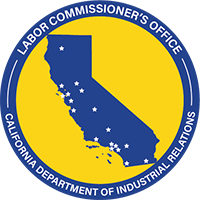Several new laws and regulations significantly affect masonry construction businesses. Notable changes include an increase in employee sick leave from three to five days, implementation of a workplace violence prevention plan, an increase in the state minimum wage and minimum exempt employee salary, updates to the criminal history regulation, and a proposed indoor heat illness regulation.
1). Paid Sick Leave (SB 616)
Starting January 1, 2024, Employees are now entitled to 5 days or 40 hours of paid sick leave (PSL). Previously, they were entitled to 3 days or 24 hours.

Additionally, by January 1, 2024, employers must:
- display the new PSL poster
- provide employees with a new Labor Code section 2810.5 employee notice if they previously provided less than five days or 40 hours of PSL.
Dept. of Industrial Relations Notice 2023-100 – Paid Sick Leave Expansion
Paid Sick Leave Fact Sheet
Paid Sick Leave FAQ’s
2). Workplace Violence Prevention (SB 553)
Effective July 1, 2024, California law will require employers to implement an effective workplace violence prevention plan (WVPP) either as part of their Injury & Illness Prevention Plan (IIPP) or as a separate document.
Specific requirements include:
- Recording incidents or threats in a violent incident log.
- Providing training to all employees; and maintaining records related to a workplace violence prevention plan.
MCAC members – Access your free customizable Workplace Violence Prevention Plan templates from the MCAC website. Contact the MCAC office at julie@mca-ca.org | (916) 966-7666 if you need the Password.
3). Minimum Wage and Exempt Employee Minimum Salary
Minimum wage will increase to $16 on January 1, 2024. Some cities and counties in California have a local minimum wage that is higher than the state rate.
Furthermore, as of January 1, 2024, employees in California must earn an annual salary of no less than $66,560 to meet the State’s requirement that exempt employees must earn no less than two times the state’s minimum wage for full-time work.
Employers must:
- ensure wage rate is displayed on the employee’s pay stub
- post the Minimum Wage Order and the Wage Order applicable to their workplace at a worksite area accessible to employees.
Dept. of Industrial Relations Notice 2023-99 – Minimum Wage Increase
4). Criminal History Regulation Updated
As of October 1, 2023, the California Fair Employment and Housing Act (FEHA) has been updated and new requirements apply to how California employers with five or more employees can use criminal history information when making employment decisions. Sample notices are available from the California Civil Rights Department for employers to use. Key updates to the regulation include:
- Employers can’t say in job postings, on applications, or in other hiring materials that individuals with criminal histories won’t be hired. This includes statements like “no felons” or “must have a clean record.”
- If an applicant voluntarily discloses their criminal history, employers can’t consider that information until after a conditional job offer is made (assuming the record can be considered at all).
Read More:
California’s Revised Criminal History Regulations Approved – Cal Chamber 8/4/23
California Changes Background Check Procedures – Ogletree Deakins 8/29/23
5). Indoor Heat Illness – Proposed
This regulation is not a done deal yet but is expected to go into effect mid-2024. It applies to all indoor work areas where the temperature equals or exceeds 82 degrees Fahrenheit when employees are present. Shops, warehouses, and manufacturing plants stand to be impacted by this rule.
Proposed Regulation – Indoor Heat Illness
View/Download the PDF of this Article
MCAC is the “411” center for mason contractors on legislation, regulations,
safety issues, and building codes.

